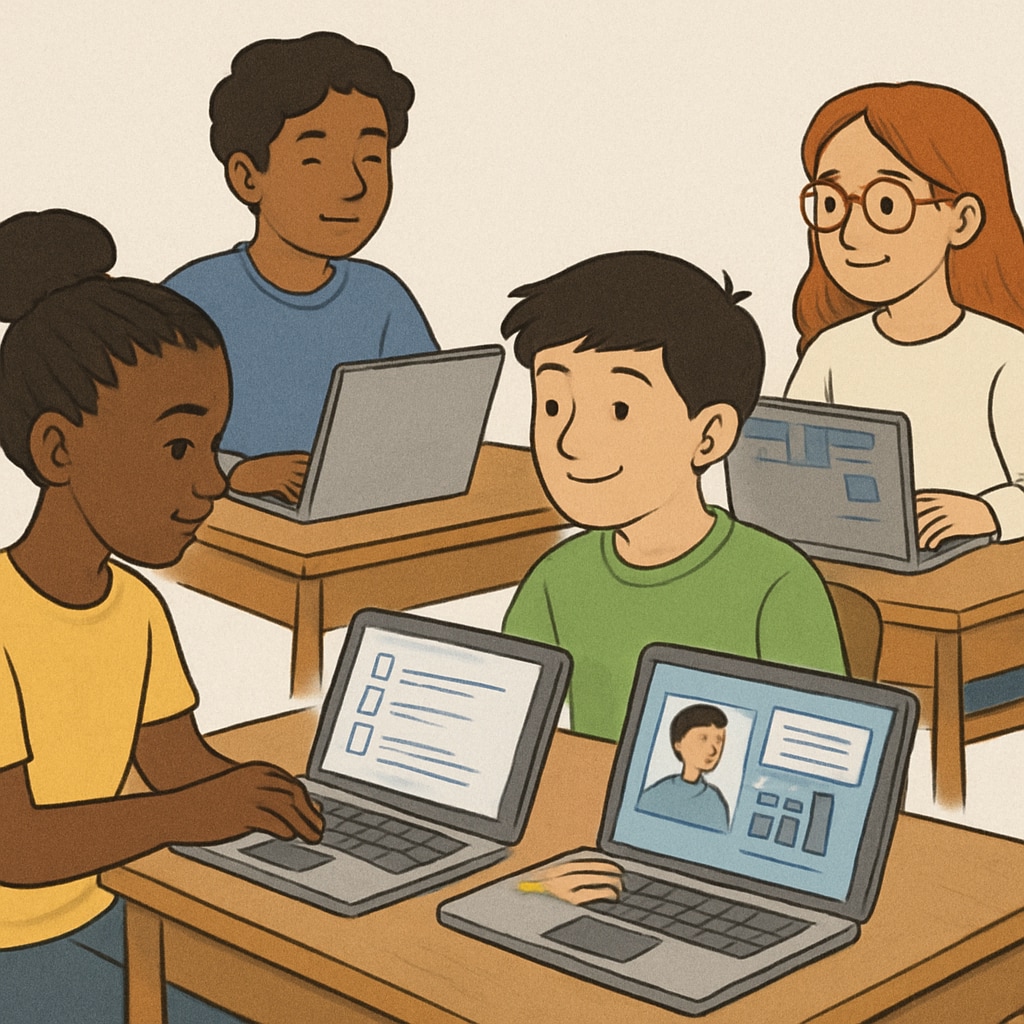Public online schools are rapidly gaining traction as a preferred educational model for modern families. Parents are increasingly choosing this approach due to its ability to offer personalized learning, flexibility for family life, and tailored support for special education needs. This article delves into the key motivations behind this shift, shedding light on why public online education is becoming a cornerstone of modern learning.
Personalized Learning: Tailored to Every Student’s Needs
One of the most compelling reasons parents choose public online schools is the opportunity for personalized learning. Unlike traditional classrooms, online platforms allow students to progress at their own pace, focusing on subjects that align with their strengths and interests. For example, if a student excels in math but struggles with reading, an online curriculum can be adjusted to allocate more time and resources to language arts while continuing to challenge them in mathematics.
Additionally, online schools often use advanced technologies such as AI-driven assessments to identify a student’s specific learning gaps. This tailored approach ensures that no child is left behind, a feature that resonates deeply with parents seeking to optimize their child’s educational outcomes.

Work-Life Balance: Flexibility for Modern Families
Another significant factor driving the popularity of public online schools is the flexibility they offer. In today’s fast-paced world, many families struggle to balance work, extracurricular activities, and traditional school schedules. Online education provides a solution by allowing students to learn from home, eliminating the need for lengthy commutes and rigid timetables.
This flexibility is especially beneficial for families with unique lifestyles, such as those who frequently travel or have parents with unpredictable work schedules. It also allows for more quality family time, as students can complete their studies during hours that best fit the family’s routine.

Support for Special Education Needs
Public online schools are also becoming a sanctuary for students with special education needs. These platforms often provide dedicated resources, such as one-on-one tutoring, speech therapy, and customized learning plans, to cater to children with disabilities or learning difficulties. For parents, this level of specialized attention can be a game-changer.
Moreover, the online format can reduce the social pressures and distractions that students with special needs often face in traditional school settings. This safe and focused environment enables these students to thrive academically and emotionally.
Affordability and Accessibility
Unlike private online schools, public online schools are tuition-free, making them accessible to a broader range of families. This affordability, combined with the convenience of learning from home, has opened doors for parents who might otherwise struggle to afford alternative educational options. Additionally, public online schools often provide necessary equipment, such as laptops and internet access, to ensure that all students have the tools they need to succeed.
As a result, this model is not only cost-effective but also inclusive, catering to both urban and rural families who might lack access to quality physical schools.
Challenges and Considerations
While public online schools offer numerous advantages, they are not without challenges. For instance, parents often need to take a more active role in their child’s education, which can be time-consuming. Additionally, concerns about socialization and screen time are common among families considering this model.
However, many online schools are addressing these issues by incorporating virtual extracurricular activities and encouraging community engagement. For example, some schools organize in-person meetups or field trips to ensure students still have opportunities to socialize.
Conclusion: Public online schools represent a transformative shift in education, offering a flexible, personalized, and accessible alternative to traditional schooling. As more parents recognize the benefits of this model, it is likely to become an increasingly prominent feature of the educational landscape. For educators and policymakers, understanding these motivations is key to refining and expanding the offerings of public online education.
Readability guidance: This article uses short paragraphs and lists to summarize key points, ensuring clarity and engagement. It balances active and passive voice while incorporating transition words for smoother readability.


